Thought Leadership Studio Podcast Episodes:
Mastering Email Marketing - Interview with Josh Kropkof of The Email Agency
Episode 51 - Learn how to transform your email marketing to a relationship-building one-on-one conversation.
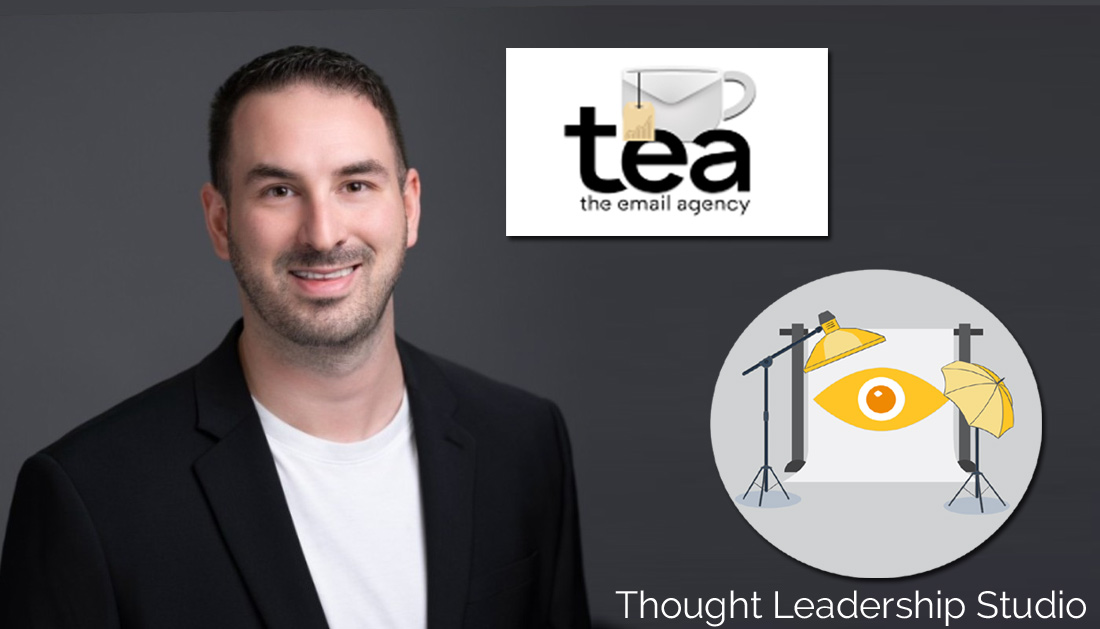
#communication, #contentwriting, #emailmarketing, #interviews, #marketingstrategy, #persuasion, #storytelling
Or Click here to listen or subscribe on appWhat this episode will do for you
:- Learn how to transform your email marketing from a transactional blast to a relationship-building one-on-one conversation.
- Discover why putting a personality or even a fictional character behind your emails can make a world of difference in connecting with your audience.
- Explore the shift from just being an agency to becoming a consultant-coach in marketing, offering a hybrid model of hands-on training and doing for optimal results.
- Understand the measurable impact that personalized, relationship-focused email marketing can have on your business, including real-life success stories.
Josh Kropkof, CEO of The Email Agency (TEA).
Are you ready to revolutionize your email marketing strategy? In this episode, we're excited to introduce Josh Kropkof, CEO of The Email Agency.
Some of Josh's coordinates:
Curated Transcript of Interview with Josh Kropkof
The following partial transcript is lightly edited for clarity - the full interview is on audio. Click here to listen.
Chris McNeil: I'm Chris McNeil, with Thought Leadership Studio, and I'm sitting here with Josh Kropkof, CEO of The Email Agency. Welcome Josh.
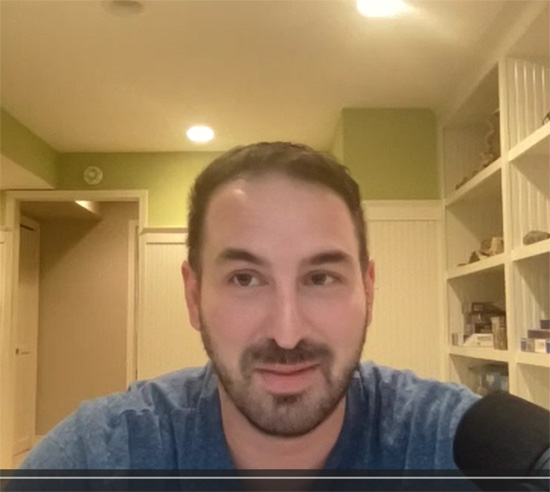 Josh Kropkof: Thanks for having me, Chris. Excited to be here.
Josh Kropkof: Thanks for having me, Chris. Excited to be here.
Chris McNeil: Great to have you here or there, wherever you may be at. Since we're talking over Zoom. I'm in Charleston, how about you?
Josh Kropkof: So I'm actually traveling right now. I'm in Michigan on Lake Michigan, which is actually good. Normally I live in Tampa, St. Pete, but I may have had to cancel this, getting the hurricane down there.
Chris McNeil: Yeah. Good move to be in Michigan right now instead of here.
Josh Kropkof: Yeah, I'd be doing all kinds of prep and stuff if I was down there, but yeah, so I'm in just outside of Grand Rapids if you're familiar with that area.
Chris McNeil: Yeah, generally familiar. Nice. Well, to introduce our listeners to you and to The Email Agency, why don't you give us the short story of how you came about founding that, what inspired you and what the vision is all about?
Josh Kropkof: So I'll give you two quick points. Yeah, sort of how we got into it is kind of a long story, but it's interesting. My name is Josh, I'm CEO and co-founder of The Email Agency, and I founded this company with my brother back in 2018. We've been doing this about five years now.
We're a small boutique agency. We've got a pretty small team, nine people, but we have to date worked with 112. We've developed creative email strategies for 112 different companies across 86 different niches. And as the name suggests, we do email marketing mostly, but also SMS text message marketing mostly for e-commerce brands that sell physical products online. But we've also worked with some B2B companies and some influencers as well. And some of the companies we've worked with are worldwide well-known brands like Craft Sportswear, you might've heard of them.
 If you ever watch the Olympics, their name is up there, you'll see them pop up. They sponsor a lot of gold medal athletes and stuff. But as far as how we got into this, that is kind of a long story, but to give you the short version, I was exposed to the, I guess the world of digital marketing through actually when I was in college learning about dating. So I was looking for advice on dating while I was in school and I joined a newsletter called Dating Advice Daily, which is an email newsletter.
If you ever watch the Olympics, their name is up there, you'll see them pop up. They sponsor a lot of gold medal athletes and stuff. But as far as how we got into this, that is kind of a long story, but to give you the short version, I was exposed to the, I guess the world of digital marketing through actually when I was in college learning about dating. So I was looking for advice on dating while I was in school and I joined a newsletter called Dating Advice Daily, which is an email newsletter.
It's not actually around anymore, but it used to be for guys in their all ages, but it was definitely targeted at guys in their twenties in college who were shy or had trouble with that area. And that was me at the time. And so I didn't know that I was learning marketing at the same time, which is kind of the interesting part.
But if you fast forward a little bit, I went to law school and was kind of trying to figure out what I wanted to do with my life. I knew I wanted to be an entrepreneur, and that's another thing we can talk about on the show if you want, but I was kind of buying time. I wasn't really sure how that would come to be. And at the same time, my brother was in college and the two of us wanted to start a business. We wanted to do this since we were kids, we've always sort of been entrepreneurial and we were kind of known as that growing up locally.
So we essentially started learning digital marketing because the guy that ran this Dating Advice Daily newsletter started holding these conferences where he was teaching digital marketing and we ended up getting to go to one of these things in Las Vegas.
And I guess I know it's already a little long, but the long and short of it is we found a gap in the marketplace where a lot of companies that do email marketing, specifically e-commerce brands, were not doing the type of email marketing that we had been learning from this other space, which was a lot more what they call direct response.
And so when we started the business, our mission was to bring this world of direct response email marketing, which is a lot more personal and a lot more, I guess focused on building a connection. We wanted to bring that to this more consumer focused world that traditionally is all emailing people all about sale, buy now, shop now, and there's no real messaging. So that's what we've been able to do this few years.
Email Marketing as Building a Relationship Between Friends
Chris McNeil: Well that's awesome. It reminds me of what I understand about good email marketing - it's about building relationships, not about transactions. The transactions come, but they come because people pay attention to your newsletter because it's about building relationships. Is that right? Does that fit your philosophy
Josh Kropkof: Yeah, I mean essentially I think that's kind of what it comes down to is email. If you think about what is email traditionally, it's a message between friends. That's what it started as is just a way of direct communication between two people. So it's not a place for advertising traditionally. And so the reason I love it so much, and I'm pretty passionate about what we do, it's not a one to many channel like all the others, whether it be TV or social media, those are one to many where you're sort of mass marketing email is one-to-one a private conversation.
And I think that the problem we still have today that I'm on a mission to fix, although it is getting a better now, but I think brands treat email as a one to many channel and they don't realize that you can actually use it to forge a much stronger connection with the customer and it's going to result in way more sales and profits and everything else, but also it's going to be just way more impactful in that person's life.
Learning from Timeless Masters
Chris McNeil: That's such an immutable principle. And I remember a book that came out while I was a very little kid, if alive at all, when it came out in the 1960s. Ogilvy on Advertising was the Bible long before the internet.
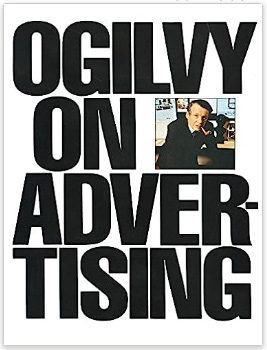 And if I remember correctly, one of the points that made was that you think you're writing your ads for the masses, but it always gets read one person at a time. So language should reflect that you're speaking to the one person at a time who's reading it.
And if I remember correctly, one of the points that made was that you think you're writing your ads for the masses, but it always gets read one person at a time. So language should reflect that you're speaking to the one person at a time who's reading it.
Josh Kropkof: Absolutely. I love that you bring up Ogilvy, one of the fathers of direct response advertising, and it's actually a book that I have not read until I actually just got it. I got a copy of that and his other book.
Chris McNeil: Oh, it's a classic.
Josh Kropkof: Yeah, yeah, exactly. So starting to read that now, but he's definitely a big inspiration and my brother is the creative director in our agency, and so he has read all of the classic ads, all of the masters in direct response, John Caples and Joe Sugarman and different people like that.
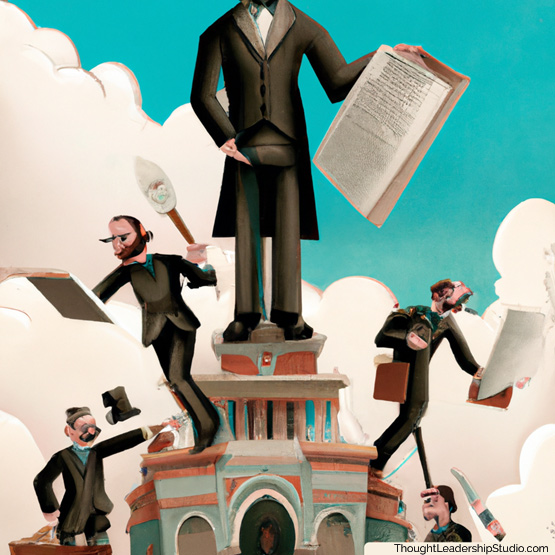 So we definitely take our principles and really a lot of our methods come from what those guys were teaching back then about direct response back in the sixties,
So we definitely take our principles and really a lot of our methods come from what those guys were teaching back then about direct response back in the sixties,
Chris McNeil: But it's so easy to forget. I like what I'm hearing and seeing so far in the sense that this is what this podcast is all about. It's about thought leadership, which is leading our customers to a better way of thinking about what we do so they can get more value from it.
And you're helping companies that need to market with email like e-commerce or that certainly can benefit from email like B2B and leading them to revere it as a one-to-one channel of building a relationship one reader at a time, as opposed to thinking of it like a blast where you're just blasting a sale to a bunch of people. Then people wonder why it doesn't work. People don't want to read emails like that.
Josh Kropkof: Yeah, it's funny, a lot of people actually, they'll use that word and they'll say an email blast, and we just don't like that word honestly.
Chris McNeil: Agree.
Josh Kropkof: It goes to that idea of like, oh, we're just blasting a sale out. And it used to work. I think people got away with that for a while in email marketing. I think things are changing quite a bit nowadays. People are more sophisticated.
They're also craving connection more than ever before and they're inundated with marketing messages now. So if you want to stand out and actually be more effective than your competitors, then you shouldn't do the same things that they're all doing. You should try something a little bit different that's more beneficial to everybody on both sides.
Getting Customers to Buy Into a Different Vision
Chris McNeil: Absolutely. And you're doing that through this reframing - for some - of what marketing with email or relationship building with email is all about.
How do you do that? How do you change the minds of your prospective customers or your customers to get them to buy into this different vision than they probably had before about what that is?
Josh Kropkof: Well, it's an interesting question. I think that at this point, a lot of our clients that we start working with, a lot of times they're coming to us because they know something's wrong with what they're doing. They don't like what the results that they've been getting. They feel that email is an underutilized channel. And for a lot of people it is.
It's because if you think about it, having this direct thread of a one-to-one channel is the best opportunity you have in marketing. And this isn't just e-commerce, by the way. This is everybody. And I think that that's maybe a different conversation, but I do think we're heading towards a world where more and more people are going to have their own email list and actually use it and can actually create freedom for themselves that way. But getting back to businesses specifically, a lot of times we've actually had our clients call us Bar Rescue. Have you ever seen the show Bar Rescue?
Chris McNeil: I have not. What's that about?
Josh Kropkof: Okay, John Taffer, it's a bit of an older show now, but it's still around. It's like he goes to these different bars that are struggling where they just have poor management or they're not sanitary. There's terrible things going on. And he goes in and he basically, it's like a bootcamp for them and in three days he turns their whole business around. It's a cool show, definitely watch a very entertaining, but people have referred to us lately as that just because sometimes when we come into a business, we start working with a new client, we quickly discover that we can just do your email marketing and we'll get results.
But a lot of times there's other things that are broken and sort of the whole marketing picture in the business. And so we end up consulting our clients on how to fix some really fundamental things as fundamental as knowing who your customer is and knowing sort of their awareness level of where they're at when they visit your website and when they start to inquire about your services or they start to look at your products, what's going through their head?
What are the pain points? What's the problem that they're trying to solve? Have they looked at your competitors? Have they been dealing with this for a while trying to find solutions or is it more early on where they're just becoming aware that this is even a problem that they need to solve to begin with? So that's one example. A lot of times what'll happen is these are things when we do email marketing, again, we're not, a lot of agencies will just come in and do imagery with check out our latest styles, shirt, hat, shoes, shop now, shop Now, shop Now, that's not us.
So we're coming in and we're doing a lot of research in the beginning to find out where the potential customer is at in their journey. And what'll happen is it'll uncover some things and the owner of the business or the marketing director, whoever we're speaking with, will say, this is invaluable information. I'm going to start changing things. And they will literally be taking stuff that we've found through the email research, and then suddenly they're changing different aspects of their website.
They're changing things on social media because again, a lot of this core fundamental messaging gets uncovered because at the end of the day, that's really what you want to be positioning in your emails. It is a conversation. So I don't know if that really answers your question.
Chris McNeil: I was just going to say it gives me a few threads to work with, but carry on if you're in flow.
Don't Hide Behind a Logo
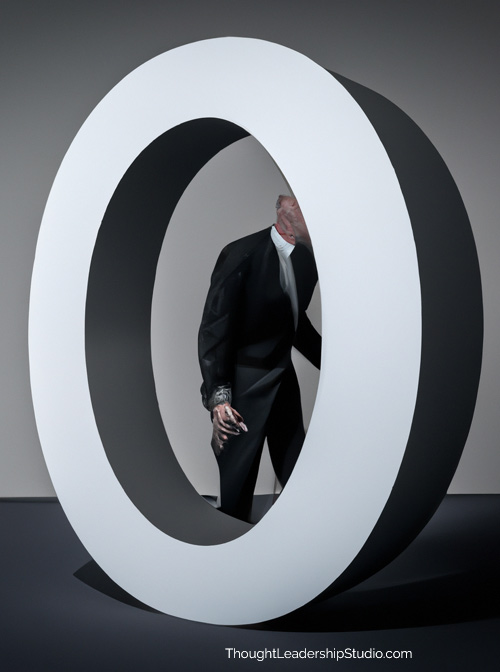 Josh Kropkof: Okay. Well, I think one thing that's important is this, is that a lot of brands, I call it, they sort of hide behind the logo to where they haven't thought of this before for whatever reason, it's not their fault. And this is just kind of how people have done things for a while. I think in internet marketing and just advertising in general, there's a much more general brand advertising aspect of things, which there's nothing wrong with by the way, and I think that's still very valuable.
Josh Kropkof: Okay. Well, I think one thing that's important is this, is that a lot of brands, I call it, they sort of hide behind the logo to where they haven't thought of this before for whatever reason, it's not their fault. And this is just kind of how people have done things for a while. I think in internet marketing and just advertising in general, there's a much more general brand advertising aspect of things, which there's nothing wrong with by the way, and I think that's still very valuable.
But with email specifically the big differences, putting a person behind it, creating a character. If you don't want to put yourself out there as the business owner or say it's a large company and it's like you're running the marketing department, who's the person, it's not the person. So that the emails are always just coming from the brand.
I mean, you can think of any large brand Target or Kohl's, how do they do things? It just comes from the brand and it's sort of this anonymous voice that's the logo talking or whatever. So a big difference with us is we really encourage companies to have a personality behind the email. And if there isn't a real person in the company, you can actually make up a character.
And I'll give you a quick but great example of this. We worked with a brand that's a pretty large brand in the home decorating space. They're like one of the top apps in the world for home decorating mix tiles is the name, if you've ever heard of them. And when we first started working with them, this was years ago, this was early 2020, they didn't have a lot going on in terms of email marketing. It was something that as a company they hadn't really focused on yet, but they had sort of the typical emails going and we suggested this to them about putting a person in front of it.
And they were very hesitant at first to do this. So we said, let us do this. Can we run a test? We're going to create some emails coming from a person and we're going to test them directly against the ones that you guys are currently running. They said, alright, let's do that. What we did is we created this composite of all, they had all these great stories people had sent in testimonials, people who had used their product and had great stories based off of it.
And so what we did is we took all these stories and we created this character. We called her Colleen, and she was basically this super fan of the brand. And so it was like she uses them all the time. She's constantly on the app, she's constantly getting these, it's framed pictures that you put on your wall. So she's got them all over her house, her relatives use 'em, her friends, and she's got all these cool stories.
So we wrote out this welcome sequence and it was actually plain text emails. And again, we wanted to make this a really sort of extreme test just to prove the point. So we made a few of these plain text emails coming from Colleen. They put 'em up directly against the ones they were already running, and they did it for a hundred days. And at the end of the a hundred days, the emails we wrote were making 82% higher revenue than the ones that they were running.
And every other stat was higher open rates, click rates. Ours were getting responses. And that's part of the thing with direct response, you want to get replies. So that's just an example of it, but I think that that is probably one of the big fundamental differences in what we do.
Agency Frame vs. Consultant-Coach Frame
Chris McNeil: Well, I think that's excellent. And what it brings up to me, one thing is it's such a different dynamic when you're doing marketing in today's age, especially when you're working with a B2B type customer to have a consultant or coaching relationship as opposed to just an agency relationship. If it's just an agency relationship, that can be a problem in marketing because then the leaders or the CMO wants you to work within their mental model of how things work. They see it as delegation.
When you come in as a consultant and you're able to add more value by opening their frame, opening their mindset to some different belief systems about how things are done, (like that which can produce an) 82% difference. I mean, that's strong. So doing the same exact thing they were doing before, say if that was their only channel, they'd be making 82% more gross revenue as a result of switching from campaign A to campaign B. In this hypothetical situation where that's all they're doing and that if you did it the way they thought you should do it to start with, would it?
Josh Kropkof: Exactly. It's interesting you bring up the consulting aspect of things because this is actually, I would say the biggest change we've had this year in 2023 in our business is we're doing way more consulting. So we used to do the first few years, it was just entirely done for you. Email marketing and SMS marketing - hand it over to us, let us take care of it. And that works for some brands, but what we've discovered over time, it actually isn't the best solution for a lot of people.
 A lot of brands have teams in place already that are doing the email marketing or that are just sort of marketing generalists working on email as one of many things. So we actually started last year in '22 - beginning of that year - we started offering training for teams and we started doing just much more training for people who are in-house, working in companies.
A lot of brands have teams in place already that are doing the email marketing or that are just sort of marketing generalists working on email as one of many things. So we actually started last year in '22 - beginning of that year - we started offering training for teams and we started doing just much more training for people who are in-house, working in companies.
We still do that, but what we did this year, which I actually like a lot better, is we've figured out how to do this hybrid model where we do some email marketing for them, but we're also consulting them at the same time and they're doing some of it, usually it's multiple people on a team. And so it's kind of this middle of the road approach. We started offering it for the first time this year.
It's hard in our, not hard, but it's for us, we have to really limit how many we can do that for because it's so hands-on For myself and my brother specifically, and we're the founders of the company, but for these brands, these are the ones we're most involved in ourselves because of the consulting aspect of it. But it's been working really well, really interesting. There's a brand in the UK that we work with that we just started in January for them.
We just met with them the other day and their numbers are insane. It's a men's health company. But the difference from when we started to now is I didn't run the exact numbers yet, but they showed me this and my mind was blown. I didn't even know we were having that big of an impact, but they have changed so many different things in their marketing since they started working with us that they were just so excited to show us some of the numbers that have been coming out. But it's really cool.
So I think that what you're saying is absolutely true. You can't get the same result necessarily just from handing an aspect of your business over to someone. It is if you can do something where you work one-on-one with them or even if there's just a learning aspect to it, that is a lot better. And I think maybe one of the challenges in our industry is figuring out how to do this at scale. A lot of companies doing this, how does that work? How can we get more people doing it? Because I do think the impact is immeasurable.
Chris McNeil: Yeah, that's a challenge. I mean, some seem to do it by having a DIY course and then making the own hourly fee really high. So yeah, you can hire me for five grand an hour or you can pay for this course for only this much.
***************************************
The transcript is lightly edited for clarity and is a partial transcript- the full interview is on audio. Click here to listen.
***************************************
Free Stuff and Offers Mentioned in Podcast
***************************************
***************************************